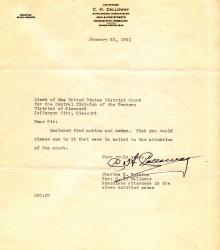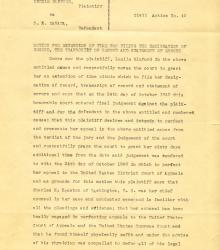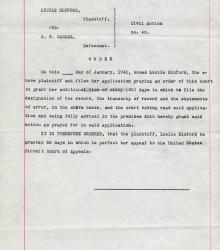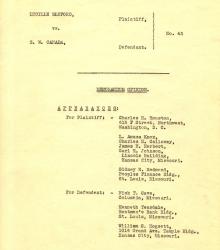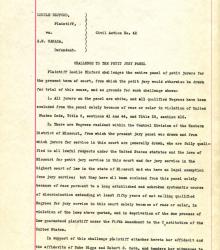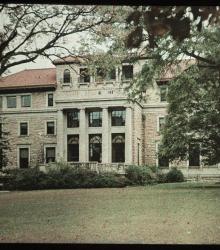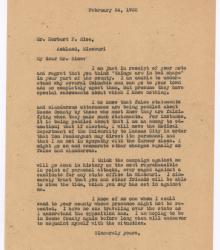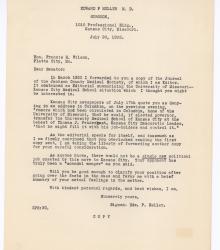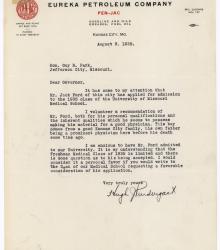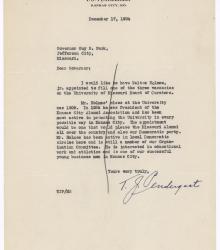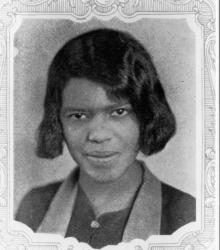Letter from Charles H. Houston to the clerk of the United States District Court for the Central Division of the Western District of Missouri, writing that he was enclosing a motion and order in the Lucile Bluford vs. S. W. Canada case, and asking that it is called to the attention of the court.
University of Missouri
Motion for extention of time for filing the designation of record, the transcript of record and statement of errors in Civil Action No. 42: Lucile Bluford v. S.W. Canada. Bluford and her attorneys request an extension of 60 days from the date of the original judgement to file documents, including a statment of court errors, in her appeal.
Order in Civil Action No. 42: Lucile Bluford v. S.W. Canada, granting 60 additional days for Lucile Bluford to file her appeal to the United States Circuit Court of Appeals.
Memorandum opinion in Civil Action No. 42: Lucile Bluford v. S.W. Canada, regarding the defendant's motion to dismiss the case. Judge J. C.
Challenge to the petit jury panel in Civil Action No. 42: Lucile Bluford v. S.W. Canada. Bluford challenges that the jury selected for her trial consists solely of whtie jurors, and that "all qualified Negroes have been excluded solely because of race or color" in violation of the U.S.
A glimpse into the history of education in Kansas City would not be complete without a profile of Hazel Browne Williams, the first African American fulltime professor at the University of Missouri-Kansas City. Hazel Browne, a native Kansas Citian, was born on February 9, 1907, the only child of John and Effie Moten Browne. She graduated from Lincoln High School in 1923, where she earned the honor of serving as the first woman sponsor major of the school's Reserve Officers' Training Corps (ROTC). Her reputation for breaking barriers would continue throughout the rest of her life.
His name was never a household word in Kansas City and, although Ernest Newcomb played a large part in determining the location of the University of Missouri-Kansas City, he was not even well-known on campus for many years. As the administrative founding father of UMKC, Newcomb is now considered to have been an important figure in the history of higher education in Kansas City, but a change in management during the university’s early years strained his relationship with the school for nearly four decades.
Letter from democratic candidate for Missouri governor, Francis Wilson, to Herbert Rice, responding to assertions that his campaign in not going well in Boone County.
Letter from Hugh Pendergast to Governor Guy Park asking that Jack Ford of Kansas City be admitted to medical school at the University of Missouri.
Letter from Kansas City political boss Tom Pendergast to Governor Guy Park, asking that he appoint Walton Holmes to the University of Missouri Board of Curators.
This essay analyzes Bluford’s initial reporting on her effort to enter MU, her commentary on her failed civil lawsuit in May 1942, and the announcement of the newspaper’s fundraising campaign for African American education in the same month. The facts of Bluford’s three-year crusade to enroll at MU are known: she repeatedly tried to enroll at the university and pursued three lawsuits, losing the last one in April 1942. The fact that she and The Call collaborated to influence readers’ responses to the quest for African American educational rights has not been acknowledged or analyzed.
